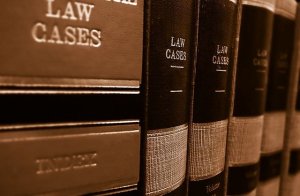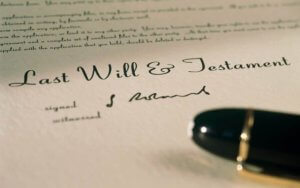- International
- Wills & Succession Planning

Longer Reads
Jury rules document found in Aretha Franklin’s couch is valid will
Aretha Franklin’s disputed estate serves as a reminder to ensure proper drafting and due execution of an individual’s Will, regardless of the jurisdiction.
2 minute read
Published 12 July 2023
Key information
- Specialisms
- Private Wealth
In Michigan, USA, a two-day hearing in relation to Aretha Franklin’s disputed estate came to an end on Tuesday. The case serves as a timely reminder to ensure proper drafting and due execution of an individual’s Will, regardless of the jurisdiction. A properly drafted and duly executed Will (or series of Wills) makes identification of the correct Will simpler and helps avoid potential dispute.
So as to provide some background, the dispute between Franklin’s sons was due to discrepancies of the two Wills found. There was uncertainty as to whether the latterly drafted Will is valid, and whether it therefore revokes the intentions of the formerly drafted Will. One Will dated June 2010 was found inside a locked cabinet and the other Will dated March 2014 was found in a notepad under the sofa. The earlier Will appoints Franklin’s third son as co-executor and provides a fairly even distribution of assets between her sons, but also details that any benefit to her second and fourth sons is contingent on them “tak[ing] business classes and get[ting] a certificate or a degree”. Whereas the latterly drafted Will appoints Franklin’s second son as co-executor (replacing Franklin’s third son) and identifies that he and his descendants should receive her $1,200,000 property, amongst other amendments.
The judge presiding over this case told jurors that the decision they were required to make was whether the March 2014 Will can and should be considered valid. What is a valid Will in this jurisdiction? And how does the wording of a Will influence which document is enforceable? In less than an hour, the jury reached a decision that the March 2014 Will is valid, bringing an end to this lengthy and expensive dispute.
So as to avoid any confusion as to whether historic testamentary documents are still enforceable, it is commonplace to insert a revocation clause so that all previous testamentary dispositions are revoked, thereby ensuring that the wishes included in the later document will take effect. If the March 2014 Will had included such a revocation clause, and complied with formal requirements, it would obviously have overridden the previously drafted Will, leaving no (or at least less) room for dispute.
In England and Wales, section 9 of the Wills Act 1837, sets out the formalities of a valid Will: the Will must be in writing and signed by the testator (the person making the Will); and the testator’s signature must be made or acknowledged in the presence of two witnesses, present at the same time. It is good practice to include the witnesses’ addresses and occupations in the execution block of the Will to ensure they are contactable in the event there are any questions as to the circumstances surrounding the execution of the Will.
Albeit there are other criteria which may affect the validity of a Will, the s.9 formalities are a profoundly important component of the validity of any Will. Contacting the witnesses to the Will to provide a contemporaneous account of the execution may shed further light on validity and perhaps even the intentions of the testator. Where there is a properly drafted revocation clause and the s.9 formalities are complied with, then, and in the absence of any challenge to the capacity or knowledge/approval of the testator, it is very difficult to argue against the proper execution of the Will.
The testimony of witnesses and a handwriting expert were heard during the hearing in Michigan this week. In England and Wales, the two witnesses who signed the document with the testator would have had critical sway as to whether the Will was valid. Having instructed a good lawyer to draft the Will properly and to ensure due execution may have avoided any dispute. This goes to show that when it comes to making a Will, to crowbar one of Aretha’s lyrics, “You better think”.
For more information, visit our Wills Lawyers page.
Related content
Longer Reads
Jury rules document found in Aretha Franklin’s couch is valid will
Aretha Franklin’s disputed estate serves as a reminder to ensure proper drafting and due execution of an individual’s Will, regardless of the jurisdiction.
Published 12 July 2023
Associated sectors / services
Authors
In Michigan, USA, a two-day hearing in relation to Aretha Franklin’s disputed estate came to an end on Tuesday. The case serves as a timely reminder to ensure proper drafting and due execution of an individual’s Will, regardless of the jurisdiction. A properly drafted and duly executed Will (or series of Wills) makes identification of the correct Will simpler and helps avoid potential dispute.
So as to provide some background, the dispute between Franklin’s sons was due to discrepancies of the two Wills found. There was uncertainty as to whether the latterly drafted Will is valid, and whether it therefore revokes the intentions of the formerly drafted Will. One Will dated June 2010 was found inside a locked cabinet and the other Will dated March 2014 was found in a notepad under the sofa. The earlier Will appoints Franklin’s third son as co-executor and provides a fairly even distribution of assets between her sons, but also details that any benefit to her second and fourth sons is contingent on them “tak[ing] business classes and get[ting] a certificate or a degree”. Whereas the latterly drafted Will appoints Franklin’s second son as co-executor (replacing Franklin’s third son) and identifies that he and his descendants should receive her $1,200,000 property, amongst other amendments.
The judge presiding over this case told jurors that the decision they were required to make was whether the March 2014 Will can and should be considered valid. What is a valid Will in this jurisdiction? And how does the wording of a Will influence which document is enforceable? In less than an hour, the jury reached a decision that the March 2014 Will is valid, bringing an end to this lengthy and expensive dispute.
So as to avoid any confusion as to whether historic testamentary documents are still enforceable, it is commonplace to insert a revocation clause so that all previous testamentary dispositions are revoked, thereby ensuring that the wishes included in the later document will take effect. If the March 2014 Will had included such a revocation clause, and complied with formal requirements, it would obviously have overridden the previously drafted Will, leaving no (or at least less) room for dispute.
In England and Wales, section 9 of the Wills Act 1837, sets out the formalities of a valid Will: the Will must be in writing and signed by the testator (the person making the Will); and the testator’s signature must be made or acknowledged in the presence of two witnesses, present at the same time. It is good practice to include the witnesses’ addresses and occupations in the execution block of the Will to ensure they are contactable in the event there are any questions as to the circumstances surrounding the execution of the Will.
Albeit there are other criteria which may affect the validity of a Will, the s.9 formalities are a profoundly important component of the validity of any Will. Contacting the witnesses to the Will to provide a contemporaneous account of the execution may shed further light on validity and perhaps even the intentions of the testator. Where there is a properly drafted revocation clause and the s.9 formalities are complied with, then, and in the absence of any challenge to the capacity or knowledge/approval of the testator, it is very difficult to argue against the proper execution of the Will.
The testimony of witnesses and a handwriting expert were heard during the hearing in Michigan this week. In England and Wales, the two witnesses who signed the document with the testator would have had critical sway as to whether the Will was valid. Having instructed a good lawyer to draft the Will properly and to ensure due execution may have avoided any dispute. This goes to show that when it comes to making a Will, to crowbar one of Aretha’s lyrics, “You better think”.
For more information, visit our Wills Lawyers page.
Associated sectors / services
- International
- Wills & Succession Planning
Authors
Need some more information? Make an enquiry below.
Subscribe
Please add your details and your areas of interest below
Article contributor
Cameron
CreesAssociate
Specialising in Digital, International trusts, tax & estate planning, Private wealth, UK trusts, tax & estate planning and Wills & succession planning
Enjoy reading our articles? why not subscribe to notifications so you’ll never miss one?
Subscribe to our articlesMessage us on WhatsApp (calling not available)
Please note that Collyer Bristow provides this service during office hours for general information and enquiries only and that no legal or other professional advice will be provided over the WhatsApp platform. Please also note that if you choose to use this platform your personal data is likely to be processed outside the UK and EEA, including in the US. Appropriate legal or other professional opinion should be taken before taking or omitting to take any action in respect of any specific problem. Collyer Bristow LLP accepts no liability for any loss or damage which may arise from reliance on information provided. All information will be deleted immediately upon completion of a conversation.
Close























































